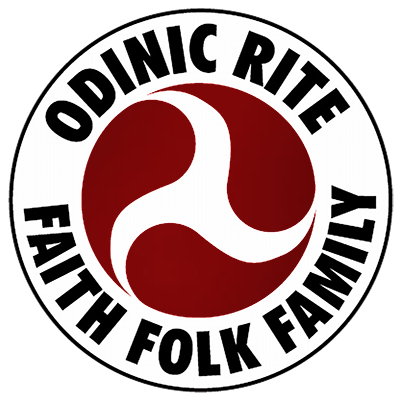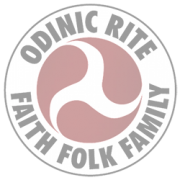“Life” as a Teacher
When the Pioneers moved to the Frontier, they had no support system, no infrastructure. They were alone in every sense of the word. Despite having nothing they persevered. The education of the young was no different. Pioneer children didn’t have traditional schools to go to or even sometimes books, paper, writing implements…anything! Regardless out of the Wild West some of our greatest scholars emerged; out of the West came some of the greatest cities and strongest Folk. How do children grow up being intelligent when there is no ‘formal’ teaching? Simple, they learned by living. Intelligence is not something gained; it is something exercised.
In the first years of the Frontier, the mother and father were the ‘educators’, and the lessons were farming, ranching, self-defense, self-reliance, and if there was time the three “Rs” (reading, writing, and ‘rithmetic ). Their life taught them ingenuity and out of necessity grew invention. The children learned through having to survive the many hardships of the Frontier. Those years children worked from the time their eyes opened till their eyes closed in the night. Boys and girls shared many jobs, but some were specific to their abilities.
Boys
The boys were their fathers’ helpers. They learned how to build fences and structures (homes, barns, etc…), not only by conventional means, but also through using what was available. The boys also helped with growing crops. The men and boys had the back braking chore of tilling the land many without the luxuries many farmers in the east owned. They only had the most basic tools that they could bring with them from the east in their prairie schooners. Then they had to do the upkeep of these farms vigilantly due to animals, frost, searing heat, and flooding. Pioneer boys also learned the intricacies of predicting weather and finding water; they used water witching and tried and true methods handed down through the generations. Next they learned how to raise their animals for food and work, this in and of itself was science. Finally they had to endlessly do maintenance and do support work on the family homestead from fixing roofs to chopping wood. All was not work and hardship though. The male children also got to fish, whittle, and build as pass times. From these young boys, men were made. These were men with a strong sense of family, the ability to sustain the life of their families, and create civilization out of nothing. They were Pioneers!
Girls
The girls were their mothers’ helpers. They learned how to make clothing from sheering the sheep to making the yarn to dying the cloth in pleasing colors, these girls worked! They had to learn to cook hearty meals from what was available to them. Many times only grains and even rodents to make something that was edible. They did all of this cooking without recipes or cookbooks. They also had to slaughter animals usually chickens and the like for meals. They had to know how to properly clean and preserve their foods through hot summers and cold winters. This also brought learning to can, cure, and dry foods. Not only did they help with the everyday jobs of homemaking, they also learned herbal medicine and, sometimes, homeopathic medicine. They learned how to heal, and became ‘frontier doctors’. Finally, they assisted their mother (as did sons) holding down the homestead while the fathers and, sometimes, sons were away. Again not everything was work, they were able to go and pick wild berries in the warm summer days and sew beautiful quilts and loom beautiful blankets. They made dolls to play with and enjoyed their homemaking activities. From these young girls, strong women were made. These were women with a strong sense of family, the ability to nurture beautiful children, and create civilization out of nothing. Pioneer mothers were the nurturers of the future generations!
The Family Unit
The most important lessons the pioneer children learned was the functions of a strong family unit. They learned quickly that the family was the team, and each and every member was relied upon to do their part. Everyone had their individual chores to perform on the homestead and both boys and girls had to take part in animal care, harvesting, and planting. They learned protection and self-reliance abilities. They learned how to fend off savages, and fend off house hole pests. They learned how to use every bit of whatever they were using. They epitomized “waste not, want not”. Every single bit of a Buffalo was used and every scrap of wood was used. They learned how a frying pan could double as a hammer and a gourd as a water bucket. These children learned the hard lessons of family protection and self-reliance. The family unit, as a team, persevered. This fostered strong family ties and later strong community ties. “The strength of the pack is the wolf, and the strength of the wolf is the pack!” (Rudyard Kipling, The Jungle Book)
As time passed and more and more Pioneers ventured into the West, the Pioneer parents wanted their children to learn the three R’s. This gave way to the one room schoolhouse, which many times was also the community church. These schools became commonplace and are the precursor to our modern school system. The children learned reading, writing, and math.
What does this mean to us as teacher of our children? The stories of the pioneers and their strength and confidence teaches us that we can and should trust in our abilities to teach our children. Today many parents sacrifice the upbringing of their children to a governmental entity because they are fooled into believe they are ‘capable’ of teaching their own children. Indeed, who is more capable, a loving, nurturing parent or a cold, callous, and unfamiliar teacher?
The Pioneers lessons are many and important. They teach us perseverance through adversity, family unity, and fostering a strong community. The lessons we should pass on to our children from our pioneer ancestors are family loyalty, self-reliance, perseverance, courage, lateral think, and the pitfalls of our now ‘civilized’ country. There are lessons in their reasoning for leaving the eastern United States, and in their ability to create and maintain a new civilization. Partake in their spirit with camping, making pioneer crafts, working your land, or simply just home teaching your child. Awaken the Pioneer spirit in your children and your families!



Leave a Reply
Want to join the discussion?Feel free to contribute!